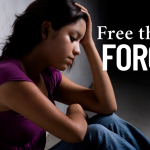
In 1999 I was sitting in my undergraduate social and political philosophy class waiting for our professor to arrive. Several minutes before class started, a fellow student turned to me to tell me that she was depressed and had often thought of killing herself. I could see on her face that she was hurting and that her telling me this was a vulnerable moment for her. It would be great to be able to say that I talked her through it, or that I listened to her and encouraged her to get help. I would love to say that, but that would be false.
Rather than taking action, I said something like “Wow, of all the people in this class I wouldn’t have expected you to want to kill yourself. You seem to have everything going for you.” I then turned my attention to other things and acted as nothing happened. I had no idea what to do or say – so I did nothing and said nothing.
She did seem like she had everything going for her. She was smart and attractive, and she had a very edgy/cool vibe about her. Before she said this to me, I envisioned her as the life of any bohemian party. However, after our short interaction, I glanced over a few times during class to see how she was doing. She looked the same as she did every day, but when I looked at her this time I could see a kind of quiet desperation in her that I had never seen before but had likely been there all along. From that day forward I saw her differently. Instead of seeing her as a shallow party girl, I began to see her as someone in need of help.
And yet, I did nothing.
Christian Attitudes About Depression
Being depressed is frowned up on Christian circles. This was particularly the case in the charismatic church. In general, if you had health problems or psychological problems the cause was a lack of faith and or demonic oppression/possession. The solution was to have more faith. If that didn’t work, then the solution was some kind of exorcism (extraction of the demonic influence). In general, if you didn’t have enough faith it was due to some kind of volitional problem or some underlying sin problem that you brought upon yourself. And if it was a demonic influence, then this was also traceable back to some willful acceptance of sin in your life.
So in the end, if you are depressed, it is ultimately your fault. Even if you aren’t responsible for the demonic oppression, you had to do something to “give the devil a foothold” in your life. And thus, the problem does stem back to your lack of faith in God and your disobedience. Looking back, I’m sure I had this context in mind when this young lady confessed her desire to kill herself. I figured that what she needed was to accept Jesus as her Savior and trust in Him and this problem would go away.
FAST FORWARD TO 2014
By all appearances, my life was pretty awesome. I was a full-time engineer at Microsoft, married, had two kids, and had a nice house on an acre wooded lot in a nice subdivision. I spoke with college students and adults about apologetics, theology, philosophy, and culture on a fairly regular basis. My good friends and solid acquaintances were supportive. By almost any measure, my life was pretty awesome.
And yet for an entire year or more, I thought of how I could die without technically killing myself.
Recognition of Depression
I wanted to die, but I was worried that if I killed myself I might end up in hell. And then killing myself wouldn’t be a release, it would only make my despair permanent. So instead, I hoped that some fast-acting disease would take me out or that a truck would T-bone my car. I was pretty sure that God wouldn’t let me off on a technicality… “Well God, I just happened to be driving too slow over those railroad tracks” as if He isn’t fully aware of my intentions. So I prayed that God would take my life and I was angry that He didn’t.
During this time I wasn’t walking around slowly with my head down. I was working, building play forts for my kids in the backyard, going to counseling with my wife, mowing the lawn, speaking at churches and university campuses, reading, hanging out with friends, and cracking jokes. I didn’t see myself as being depressed, and I don’t know how anyone else would have concluded that I was depressed.
However, things culminated in 2015 when I realized that I was thinking about my death a lot and I didn’t want to be around anyone. I didn’t want to be around my wife, kids, parents, friends, etc. I am not exaggerating – I literally didn’t want contact with another human being. Every time I hung out with someone it was motivated by some sense of duty, not desire. But what scared me the most is when I realized that I didn’t care if my family or friends lived or died. I was entirely numb to their well-being.
Did Not Feel Depressed
There were other reasons why I didn’t think I was depressed. I occasionally had feelings of sadness, but in general, I didn’t. I didn’t have many feelings at all. It wasn’t an overwhelming sense of sadness, it was thoroughgoing numbness. It was a kind of giving up on any sense of meaning or purpose. Activities that once energized me were now rote, dead, a thing to be checked off a list. If I did activity X it was because activity X was to be done – and that’s it.
I think it was late 2015 that I was driving down the road and I realized… wow I think I am depressed. You would think all of the thoughts of my death, the numbness, and the sense of isolation would have clued me in, but for a long time, it didn’t. I took it to be a “phase of life” that you get through and that this was something everyone dealt with so… that’s what you do, you just deal with it.
But as I talked with my family and friends I began to realize that while everyone goes through rough patches, not everyone gets to a place where they care about nothing and think about dying all the time. I was truly in a dark place and until I realized it, I just considered it a part of life – something you just live with.
The Problem
The recognition that something was wrong with me was a start, but my thought was “Ok, I’m depressed – now what”?
For many people, the answer to that question is obvious: go see a counselor.
But I wasn’t keen on psychologists. In part because of my upbringing in the charismatic church, in part, because I don’t trust the training that psychologists get, and in part, because (at the time) I was so numb that I wasn’t motivated to do anything about it. But more than all of that, I didn’t think that was the answer because I didn’t see myself or my thoughts as the cause of my depression.
For 15 years, my goal was to be an academic. It was my calling, it was what I loved, and it was meaningful. By comparison, everything else was boring:
- People who didn’t know much about philosophy, theology, history, etc. – boring
- Sermons at churches – boring
- IT work – boring
- Kids that pooped, projectile vomited, demanded food, etc. – boring
- Gardening – boring
The Joy of Contemplation
Most people go through life without ever experiencing that deep joy that is called the “joy of contemplation”. Most people think they have experienced it, but most are wrong. When you experience it, it’s like seeing a beautiful woman and realizing that the beauty of every other woman pales by comparison. You want to drop every other pursuit so that all of your resources can be dedicated to the pursuit of a contemplative life.
I have seen seminary students, professors, and academics who have gone through their entire academic careers without having this “joy of contemplation”. It’s not something that happens simply by going to school and or earning a degree. It’s something that you receive after years of hungering and thirsting for knowledge for its own sake. If you search after knowledge only for some practical end, you might have some “ah ha” moments, but you will not understand the joys of the contemplative life.
When I began to realize that I would not be able to pursue this calling, I was disappointed. More than that, I was broken.
Exacerbated Problem
This difficulty was exacerbated by my deteriorating marriage. To be sure, my desire to pursue a contemplative life contributed to problems in my marriage because everything became subordinate to my pursuit of knowledge and understanding. But it didn’t help that my wife suffered from extreme anxiety and OCD. I attempted to deal with her fears in the best way that I knew, but it was insufficient.
I grew increasingly exhausted by our 3 to 4-hour conversations that seemed to go nowhere and she grew increasingly hurt by my lack of affirmation. This cycle continued until the 2014 / 2015 time frame when it all came to a head. Neither one of us wanted to be near each other. We both thought of divorce, but neither saw it as a real option. We both stayed in a situation that was extremely draining in hope that one day we could move past this.
I had pinned my failure to pursue academics on her and she had pinned her feelings of hurt, anxiety, and disappointment on me. We were both resentful, distant, and bitter. Her response was more obvious because her emotions were visible. My reaction was not as obvious because I turned into a calloused, unfeeling zombie.
The Road To Normal
In my case, growth didn’t come about from counseling, even though we did go to counseling. For some, that is probably helpful. For us, it made things worse as far as I was concerned. It all seemed to be a big circle where no progress occurred.
Just as I thought “God I am done with this, I’ve got to end this” my wife and I prayed that we could move to Colorado. God granted this request and I was able to find work in Colorado. I spent a little over a month by myself in Colorado before my wife and kids could come out. This gave me time to reflect, pray, rest, and rethink my family life and goals.
I did find some things in myself that were rooted in selfishness, pride, and other vices. No doubt these contributed to my depression and our marriage situation more profoundly than I knew. And there were some behavioral/procedural changes that I made as a result of these reflections.
But I don’t think this in itself is what resolved my depression. More than anything it was something that happened over some time.
Taking Time To See
Our life in Colorado was much more laid back and I took more time to get to know the little quirks of my wife and children. I was intentional (whether I felt like it or not) about taking the family out and doing things together. My daughter always wanted to play with stuffed animals and play games and she changed the rules several times throughout the game. It drove me crazy. But over time, I started to realize, through patient endurance, the beauty of these “little things”. There was much to be learned in the appreciation of a young girl’s imaginative play.
Over time, I became more and more appreciative of the novel goods of everyday life. The little songs my daughter sang while doing crafts, the steps my son took to overcome being afraid of something, and the day-in and day-out love my wife showed to our children. I began to see the good in everyday life.
I always knew of these goods – what I didn’t realize is that I hadn’t merely subordinated these goods to the contemplative life, I had eliminated these goods altogether in my pursuit of the contemplative life.
Sacrificing Lower Goods To Pursue Higher Goods
My singular pursuit of one of the highest goods nearly destroyed my life. And ironically, when I tried to pursue it singularly, I wasn’t doing a very good job of it. The more I began to recognize and enjoy these “small goods” the more I was able to see where I had gone wrong. Ironically, my thinking became more clear when these goods were incorporated into my pursuit of the contemplative life. Rather than detracting from it, taking the time for “lesser” goods enhanced the joy of contemplation.
Not only did contemplation become meaningful again, but everything became meaningful again!
This didn’t fix every aspect of my life, but it gave me the motivation to begin to fix other areas of my life. Sometimes the fixes were patience, sometimes taking charge in situations where I would have just left it for someone else to help. There were things like “taking out the trash more often” that helped, taking up biking helped, and learning to better manage disagreements with my wife helped.
Was No Single Solution
While some kind of fundamental shift in attitude, disposition, and thinking was required, there wasn’t any one thing that happened that got rid of my depression. For me, it had to start by my seeing the world as good again for me to be motivated to be a productive member of the world. But that was just the start. The development of wisdom and virtue in different areas needed to happen. Good counselors can see where you need to grow and help point that out.
Big things like the biblical salvation narrative and small things like appreciating the little songs your daughter sings while playing are important. There is a hierarchy of goods, but you can’t jettison the lower goods and still obtain the higher ones. This was a lesson hard won for me, but I am better off for having learned it.
The narrative that my charismatic church gave me about sin and demons was true but too facile. The admonishment to see a counselor is often helpful, but it can often be a strong analog to “Go to the doctor, get some pills, and you will be fixed”. I believe that my recovery began with God’s grace. He enabled and empowered me to see again. I am not and I have not been depressed since that time. I am better able to see the roots of depression now and can head them off before they become a problem. That said, I know that I am vulnerable to depression now so I have to be on guard.












